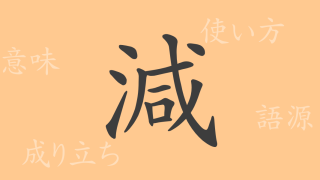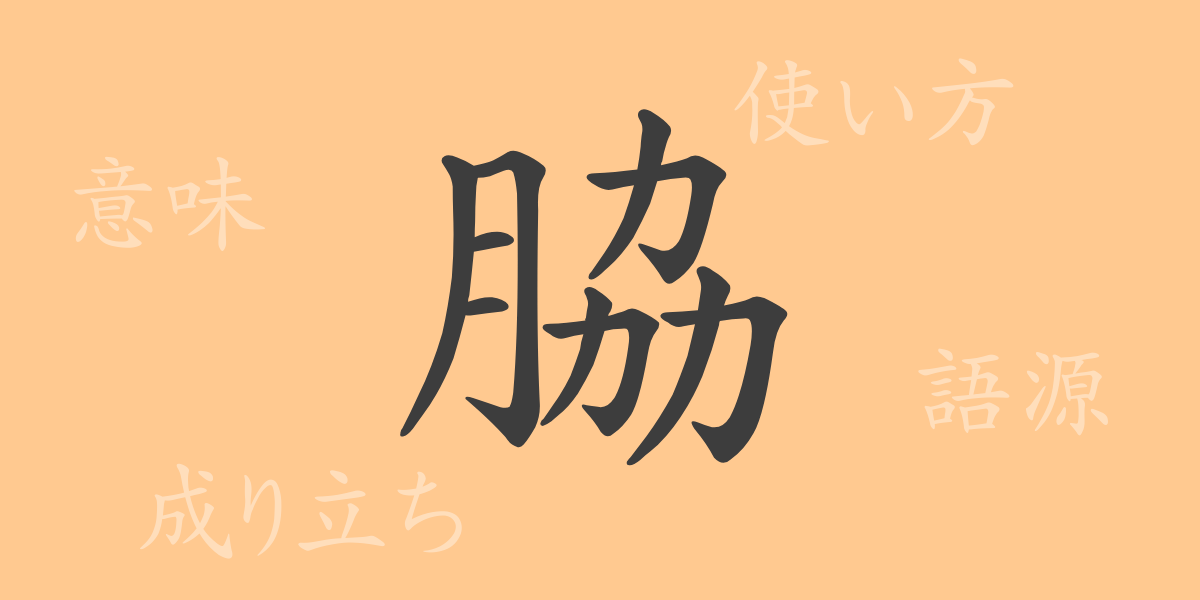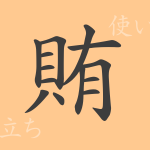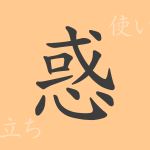Kanji (かんじ) in the Japanese language carries deep meanings and historical significance through its shapes and sounds. The kanji “脇” (わき, waki) is no exception. Commonly used in daily life, this character refers to a part of the body and is also employed in various metaphorical contexts. In this article, we will explore the origins, meanings, usages, and related idioms and phrases of “脇” (わき, waki).
Origins of 脇 (わき, waki)
The kanji “脇” (わき, waki) originated in ancient China as a word referring to a part of the body. Initially, it was composed of “肉偏に劦” (にくへんにきょう), combining the element representing the side of the body with the element symbolizing the joining of forces. Over time, its shape and pronunciation evolved, settling into its current form, “脇” (わき, waki).
Meanings and Usages of 脇 (わき, waki)
The primary meaning of the kanji “脇” (わき, waki) refers to the side of the human body between the shoulder and the waist. However, its usage extends beyond this basic definition to include meanings such as “a part that deviates from the main path.” For example, the expression “脇道にそれる” (わきみちにそれる, wakimichi ni soreru) means to stray from the original objective.
Readings, Stroke Count, and Radical of 脇 (わき, waki)
The kanji “脇” (わき, waki) has several readings and varies depending on the context in which it is used.
- Readings: The on’yomi (音読み) is “キョウ” (きょう, kyou), and the kun’yomi (訓読み) is “わき” (わき, waki).
- Stroke Count: The kanji “脇” (わき, waki) has a total of 10 strokes.
- Radical: The radical is “肉” (にくづき, nikuzuki), but in modern kanji dictionaries, it is sometimes classified under “月” (つきへん, tsukihen).
Idioms, Phrases, and Proverbs Using 脇 (わき, waki)
Idioms and phrases containing “脇” (わき, waki) often reflect the meanings inherent in the kanji. For example, “脇役” (わきやく, wakiyaku) refers to a supporting role that, while not the main character, plays an important part in a story. The expression “脇を固める” (わきをかためる, waki wo katameru) means to support or assist. Additionally, the proverb “脇見競走” (わきみきょうそう, wakimi kyousou) is used as a metaphor for being distracted by other things instead of focusing on the goal.
Summary of 脇 (わき, waki)
As we have seen, the kanji “脇” (わき, waki) has evolved to encompass a variety of meanings derived from its shape and sound. From its concrete meaning of a body part to its abstract usage representing deviation, it plays a significant role in the Japanese language. We hope this article has provided you with a deeper understanding of the kanji “脇” (わき, waki).

























